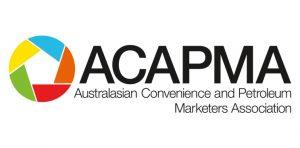By Australasian Convenience and Petroleum Marketers Association Executive Manager Employment and Training Elisha Radwanowski.
The National Measurement Institute (NMI), the regulatory body that oversees weights and measures, has reported on its annual visits to fuel sites for 2020-2021. NMI increased the number of its regular site visits to inspect fuel pumps (bowsers) as part of its ongoing focus at a national level on the compliance of fuel retail businesses. This continued increased focus came following a trend up (from a very small base) in the number of pumps found to be inaccurate (under-delivering) in 2018-2019.
After testing 6258 fuel dispensers in 2020-2021, the NMI found that 3.5% of those tested were delivering more fuel than indicated on the display, while 3.9% were delivering less fuel.
“This represents a significant improvement on inaccuracy levels detected in recent years” outlines the Report.
This trend down in inaccuracy comes off the back of an increase in the number of dispensers inspected (increase of more than 70% from 3669 to 6258).
According to the Report, the great majority of the dispensers inaccurate to the consumer disadvantage were incorrect by between $0.30 and $0.90 for every $100.00 of fuel dispensed.
Fuel dispenser complaints continue to feature heavily (449), representing almost two thirds of all complaints received by the NMI. After assessment the NMI has found that only 6.5% (17) of all customer complaints received were found to be justified.
Whether it is giving away fuel, or under-delivering, incorrect pumps are non-compliant and a risk to the business. With customers focused on value, and the regulator inspecting more sites than ever, all businesses are encouraged to review their pump verification and calibration to ensure compliance now or it could cost more than just money.
The focus of NMI has been on inspecting as many pumps as possible, resulting more than five times more pumps inspected during this period versus the same period five years ago. This focus has been ongoing for the past few years, and while the number of inaccurate under-delivering pumps found is reducing, inspectors are maintaining the focus and will be visiting sites across the country to inspect and test fuel dispensers to ensure that they are accurate in the amount they are dispensing and charging customers. Fuel retailers are encouraged to prepare for these visits by reviewing the fuel dispenser verification, calibration and maintenance practices now.
There are several requirements under the law that apply to the operation of retail fuel dispensers, that are all aimed at ensuring the customer receives the exact amount of product they are ultimately charged for. The overarching requirement is that fuel dispensers are accurate at all times; that when a pump displays that it has dispensed 10 litres of product, that the amount dispensed is actually 10 litres.
If you are selling petrol, diesel or LPG you must comply with the following requirements:
– LPG dispensers must be accurate within the specified tolerances
– All other fuel dispensers must be accurate within ± 0.3%
– All volume must be displayed in litres (L)
– Indicators showing unit price ($ per L) and total price ($) must be clearly displayed
– All hoses, nozzles, lights and displays must be in good working order
– All fuel dispensers used for the wholesale and retail sale of petrol, diesel and LPG must be verified and their calibration points sealed by a servicing licensee or trade measurement inspector
– In the case of multi-product fuel dispensers, each delivery hose is a measuring instrument
– Control systems attached to fuel dispensers are a measuring instrument and must be verified by a servicing licensee or trade measurement inspector.
Of particular interest to the inspectors when visiting sites as part of this campaign will be the requirements pertaining to verification of fuel dispensers and control systems, with inspectors seeking to confirm that the dispensers and control systems have been verified appropriately.
It is a requirement that fuel control systems and fuel dispensers be verified (and their calibration points sealed) by a servicing licensee. Fuel dispensers cannot be calibrated and verified by just anyone, there is a requirement that they be verified by persons certified by NMI to undertake the verification of fuel dispensers.
The requirement for verification is very specific, verification must be done by a qualified person holding current certification with the regulator. The frequency of verification however, is less specific. In order to achieve and demonstrate compliance with the requirement for the fuel dispenser to be accurate at all times regular calibration and verification is recommended.
What is regular will depend on the circumstances onsite, such as; the volume of product dispensed, the age and nature of the pumps themselves, the harshness of the environment (floods, snow and searing heat) and the regular maintenance of the fuel dispenser. Verification requires that the calibration points of the fuel dispenser are sealed, and regular maintenance and calibration will require these seals to be broken, which removes the verification. Every time the fuel dispensers calibration points are opened the fuel dispenser will need to be verified again by a qualified and certified servicing licensee.
Where breaches of applicable laws are found, NMI can issue infringement notices with fines of $1100 for each offence. Where repeat or particularly serious breaches are detected, the matter can be referred for prosecution and maximum penalties of $220,000 per offence as a company or $44,400 per offence as an individual.
The compliance campaign will see NMI visiting retail fuel sites around the country to confirm sites are complying with the requirements under the law.
For more information on the requirements around fuel dispenser and control system verification please see the following links;
NMI – Guide to the Sale of Petrol, Diesel and LPG –https://www.industry.gov.au/regulations-and-standards/buying-and-selling-goods-and-services-by-weight-and-other-measurements/selling-liquid-fuels
NMI – Assistance finding a Servicing Licensee for Fuel Dispensers and Fuel Control Systems – https://www.industry.gov.au/regulations-and-standards/servicing-licensees
NMI – Compliance Report 2020-2021 – https://www.industry.gov.au/data-and-publications/legal-metrology-compliance-in-2020-21
Published with permission from ACAPMA.
Source: https://acapmag.com.au/2021/10/fuel-dispenser-compliance-improving-but-there-is-more-to-do/.




